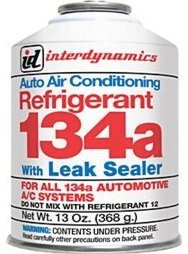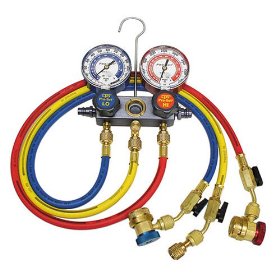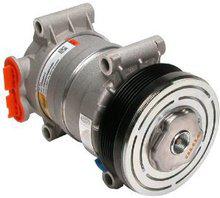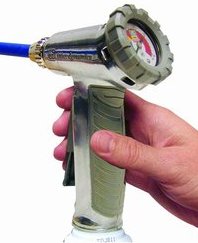DIY AC Recharge Questions
 Car air-conditioning recharge season is almost here. Since a lot of people who visit this site are inclined to jump into some do it yourself auto repairs I thought I would tackle two of the most asked questions about DIY AC recharge that I have received here on the automotive information blog.
Car air-conditioning recharge season is almost here. Since a lot of people who visit this site are inclined to jump into some do it yourself auto repairs I thought I would tackle two of the most asked questions about DIY AC recharge that I have received here on the automotive information blog.
Several law abiding citizens asked me if it was against the law to charge their own car air-conditioning at home. I had to do a little research on this question because I really wasn’t sure of the answer and I figured that it might depend on what State you live in. After doing some research over at the EPA website and looking around for individual State laws it would seem that most follow the EPA guidelines from title VI.
These laws concentrate on Freon that is harmful to the ozone layer. It boils down to what kind of Freon is in the vehicle and what services you plan to do in the driveway. The laws focus on the release of Freon into the atmosphere which is strictly prohibited for CFC type refrigerants. The most common Freon would be R 134 A and this does not contain CFCs.
 Here is a link to the EPA.gov website and particularly the page that deals with government regulations on recharging AC. You can also check with your local and state governments to make sure that there is no specialty law in place to discourage do it yourself ac recharge on cars or light trucks at home. Finally there is a hotline for EPA regulations governing automotive air-conditioning at 800-296-1996.
Here is a link to the EPA.gov website and particularly the page that deals with government regulations on recharging AC. You can also check with your local and state governments to make sure that there is no specialty law in place to discourage do it yourself ac recharge on cars or light trucks at home. Finally there is a hotline for EPA regulations governing automotive air-conditioning at 800-296-1996.
To sum up the question is it legal to recharge your car’s air conditioning at home, the answer is yes, with a few exceptions. Do not add Freon to automobiles made prior to 1993 or to one that uses R-12 for refrigerant. This is illegal and can only be done by a certified mechanic. A good rule of thumb that I checked on by asking a few of the local parts stores was, if the part store sells recharge kits or Freon in the store to the general public than it should be legal to use those supplies to recharge your own air-conditioning system. Chain stores like AutoZone or pep boys have legal departments to make sure that the things they sell are legal to use in the towns where they do business.
Can I Damage My AC System with a Recharge
 The second most common question I get is from people worried about doing further damage to the system or making the situation worse by adding DIY cans of Freon. The quick answer is yes, you can make things worse or damage expensive parts like the compressor.
The second most common question I get is from people worried about doing further damage to the system or making the situation worse by adding DIY cans of Freon. The quick answer is yes, you can make things worse or damage expensive parts like the compressor.
There are a lot of things that can go wrong when somebody without experience attempts to service their own air-conditioning system. I’m not trying to scare anybody I just want to make you aware of the downsides. To me the biggest downside is how dangerous Freon is and I worry about people not taking precautions like wearing safety glasses or gloves when they’re working around Freon.
The other downside is if you add too much Freon to the system, not only will the air not get cold, but you can add enough to cause major damage to the compressor. The inlet side of the compressor pulls in Freon vapor. It’s possible to overfill the system to the point where liquid will work its way up to the suction side of the compressor. A liquid cannot be compressed and if this happens it will most likely destroy the compressor.
 The latest do-it-yourself AC recharge kits come with a gauge that has red and green on the dial this can help you install the correct amount and prevent damage to the compressor as explained above. With all of the negatives being said most people just want to add one can of Freon with some leak sealer to see if that helps their condition. I personally have never seen anybody add eight or 12 ounces of Freon and done any damage to their vehicle.
The latest do-it-yourself AC recharge kits come with a gauge that has red and green on the dial this can help you install the correct amount and prevent damage to the compressor as explained above. With all of the negatives being said most people just want to add one can of Freon with some leak sealer to see if that helps their condition. I personally have never seen anybody add eight or 12 ounces of Freon and done any damage to their vehicle.
So in the end it’s up to you! I just wanted to give you some detailed information about whether or not charging your air-conditioning system at home is legal and the kind of damage you can do to yourself and your car if you attempt to do this at home. For more of the latest articles posted here visit the auto repair information blog home page.

